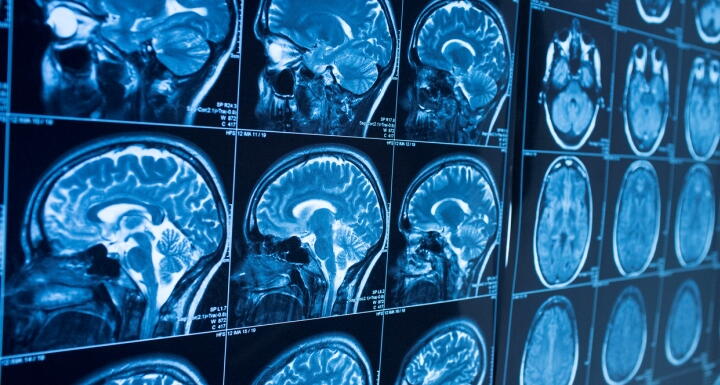North Carolina Cases Involving Traumatic Brain Injuries

A traumatic brain injury (“TBI”) results from a specific traumatic event causing some type of damage to the brain. Such trauma could be the head being struck by an object or being jolted by a collision, or even having an object penetrate the skull.
Many different causes—car wrecks, “slip and fall” mishaps, consumer product defects, watercraft accidents, and certain types of medical malpractice—can result in TBIs. This article provides an overview of some of the legal issues involved when a TBI is caused by another party’s negligence and the related potential legal liability for the injury.
Background
According to the United States Centers for Disease Control and Prevention, there are about 2.8 million emergency room visits, hospitalizations, and deaths each year as a result of TBIs. The number of emergency room visits alone for TBIs totals 2.5 million annually.
TBI symptoms can include, but are not limited to, headaches, memory loss and other cognitive impairment, dizziness, light sensitivity, speech problems, depression or anxiety, sleep problems, weakness, and other neurologic deficits.
TBIs range in severity. Mild TBIs typically involve concussions with associated headaches or short-term memory loss. Many times such effects dissipate in a matter of days, weeks, or months—but not always. Even mild TBIs can lead to permanent, life-altering injuries. Moderate or severe TBIs have more significant cognitive impacts that may even require long-term hospitalization or other long-term skilled medical care.
For mild TBIs, a primary care physician or neurologist typically will attempt to manage the patient’s symptoms for several weeks or months. Again, in most cases, the expectation is that the symptoms will subside with time. However, when TBI symptoms persist and appear to be related to a long-term or permanent injury, a neuropsychologist often becomes involved in the patient’s care.
The neuropsychologist can conduct testing to help quantify and describe the specific cognitive effects on the patient, and can use those results to recommend additional treatment to help the patient cope with the TBI. Depending on the type and severity of the TBI, other medical professionals also can become involved, including physical and occupational therapists.
Liability for a Traumatic Brain Injury
If a TBI is caused by the actions of another party, that party may be legally liable for the resulting damages. Under North Carolina law, everyone has a duty to act with at least reasonable care in all situations.
What is “reasonable” depends on the specific situation—whether it’s driving a vehicle, maintaining personal property, designing a consumer product, or providing medical care. When a party fails to act with reasonable care, and the result is an injury to another, the acting party is deemed to be negligent. Unless a legal defense applies, the negligent party causing an injury such as a TBI will be liable for the damages resulting from the negligence.
Damages
The aim of awarding damages is to make the injured person “whole” under the law. When dealing with a TBI or other serious injury this, of course, is a legal fiction—no amount of money can unwind the clock and make the TBI disappear. But, the law does the only thing it is capable of doing—ordering the payment of money to compensate for the injuries incurred.
The negligent party or that party’s insurance company, if applicable, will be responsible for paying out-of-pocket expenses such as past medical expenses and future medical costs for ongoing care, as well as lost wages or a claim for diminished future earning capacity. Non-economic damages meant to compensate for pain and suffering, loss of use of part of the body, or the permanency associated with the continuing effects of a TBI, may also be awarded.
When the result is a permanent TBI, damages for physical pain, mental suffering, and the permanency component of the condition are particularly important. The medical bills for a TBI may not be significant compared to the substantial effects on a person’s life—including limitations on the ability to interact with friends and family, work, engage in activities of daily living or other activities that, before the injury, gave the injured party enjoyment and meaning. These damages could have significant value in the appropriate TBI case, given the harms inflicted on the injured party.
Issues Particular to Traumatic Brain Injury Cases
Insurance companies and defense attorneys often mount highly contested challenges in TBI cases. One reason is that these injuries can be less obvious compared to other injuries. For instance, a judge or a jury can look at someone with a missing arm or leg or who is in a wheelchair and clearly see that they have been injured. A TBI, however, is usually less obvious to someone looking at the injured party (particularly in the case of a mild TBI). Thus, proving and documenting the effects of the TBI is incredibly important, and requires additional steps when compared to other personal injury cases.
Historically, defendants have contested TBI claims where there was not early and objective evidence of a brain injury—such as a specific trauma or bleeding appearing on a CT scan or MRI. But the argument that there cannot be a TBI unless such evidence is available is incorrect. Numerous studies now support the reality that individuals can suffer from life-changing brain injuries despite the traumatic injury not being directly apparent from tests of physical brain structure.
Defendants will also regularly argue that proven mental deficits were not caused by the TBI, but, rather, were preexisting conditions. To support such an argument, defense investigators will comb prior medical records for reference to prior head injuries (however minor), or for psychological conditions such as anxiety or depression.
The lack of any pre-TBI neuropsychological testing to compare with post-TBI testing encourages defendants and insurance companies to try and raise doubts. As a result, the testimony of the injured party’s treating physicians becomes incredibly important, as does that of friends, family, coworkers, or other colleagues. These later individuals can be particularly important because they knew the injured party both before and after the TBI and can describe their observations of the true effects of the TBI on the injured party’s life.
Conclusion
Sadly, thousands of people suffer from traumatic brain injuries in North Carolina every year. When the TBI is caused by another’s negligence, there may be a legal claim for the resulting damages. Such TBI claims can be highly contested by defendants and insurance companies.
As a result, the best course of action is for an injured person or a member of that person’s family to consult a skilled attorney familiar with TBI cases. Doing so can help the injured party and that party’s family navigate a complicated and difficult legal situation and ensure the injured party is being treated as fairly as possible under North Carolina law.
—
© 2022 Ward and Smith, P.A. For further information regarding the issues described above, please contact Jeremy M. Wilson.
This article is not intended to give, and should not be relied upon for, legal advice in any particular circumstance or fact situation. No action should be taken in reliance upon the information contained in this article without obtaining the advice of an attorney.
We are your established legal network with offices in Asheville, Greenville, New Bern, Raleigh, and Wilmington, NC.
Featured News
View All
